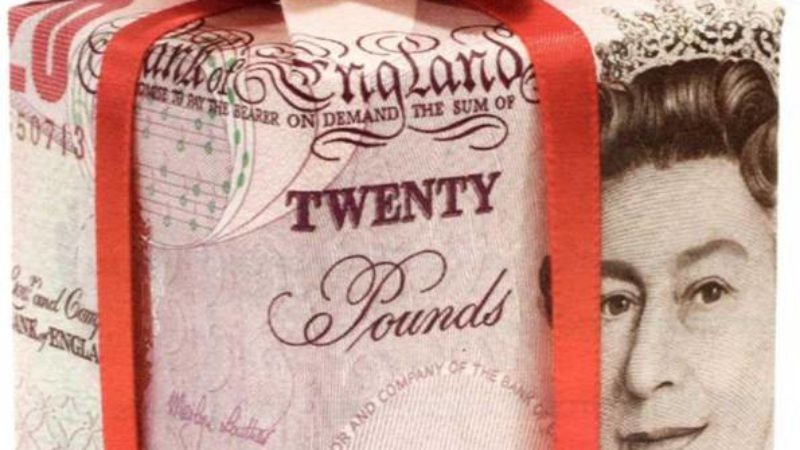
By Mark Donne
Apart from a flag, a Queen, or a team, what consolidates our nation state? The Olympic Games demonstrated that in this regard our most immediate force is sport, and older generations are understandably more likely to feel glued by a Monarch unchanged by the special nightmares of the 20th century.
Other collective activities are seen by many as bureaucratic abstractions; even general election voting is for too many quite detached from living reality. And then there is tax; the single biggest thing we do together.
Regardless of whether it is seen as an important contribution, a minor annoyance or a necessary evil, tax is the transaction we all make to live in a society of efficiency, compassion, security and safety. Without it you have none one of those things; nor incidentally do you have an Olympic games, and you most certainly don’t have 29 gold medals. It is not hyperbole to say every single payment or wage-slip deduction is a red blood cell to the lifeblood of our modern civilisation.
Conditions for the transformation of the perception of tax were naturally set by the 2008 financial crisis and subsequent political decisions to foot its bill by cutting the state. Now that such a squeeze is being imposed, Britons (apparently) acquiesce to the siege mentality but impulsively look around them, just to check everyone else is being constricted too. Via the brilliant lenses of Private Eye, The Tax Justice Network and campaign groups like UK Uncut, they have gasped at a very British problem.
Half of all of the international tax havens frenetically depleting sovereign treasuries are Britain or British. That is to say they are “Overseas Territories” such as the Cayman Islands or British Virgin Islands, or “Crown Dependencies” such as Jersey, all flying the Union Jack, singing “god save the queen” and acting as satellite jurisdictions. Any suggestion that they are independent of the UK government is manifestly absurd.
At home, 98 of the top FTSE 100 companies use tax havens. Far from being an exotic aspect of the financial services system utilised by a few “morally repellent” individuals or companies, the use of these scattered islands, seemingly outside of territorial or political control is utterly widespread in corporate and wealthy circles.
Put simply, as the country over time has become more economically reliant on the City – “the head office” of UK financial services and indeed global finance – the City has been able to heavily influence a domestic tax system wholly receptive, even moulded to industrialised abuse. Or as a recent Times editorial put it: “The British tax system is unfair. It charges the vast majority of people the basic rate of income tax, and expects them to pay. It asks a minority to pay higher rates of tax, and then invites them to avoid it.”
And despite all protestations to the contrary and the theatrical language of moral outrage, the problem is getting worse. In the most recent budget the coalition government legislatively increased the capacity for trans-nationals companies to avoid billions in tax, niche UK and offshore based tax law firms are increasing in scale at a decent rate, just as the expertise of HMRC to rumble them shrinks.
Indeed, far from challenging tax havens, Conservative Treasurer Lord Fink recently suggested we directly emulate or compete with them, as opposed to merely allowing our financial centre to control them. Fink is in good company; tory MP for the City Mark Field has continually defended tax havens, tory peer and former tory MP Lord Blencathra is the current lobbyist to the UK of the Cayman Islands and far from any moral red lines, on a recent visit to the Cayman Islands a Foreign Office Minister announced that – despite the Island being described by the New York Times as “a tax-free home for 9,253 hedge funds” – “this UK Government is proud of the achievements of the Cayman Islands”. The Minister was subsequently replaced in a reshuffle that saw a Conservative former tax avoidance lawyer promoted to the Treasury.
This vivid injustice transcends party politics and governments of all colours have failed to counter it. Action or inaction is very simply a question of political will and as such a fundamental challenge to any political party that seeks to unite and govern Britain. In the US, small business networks have begun to protest at the chronically unfair market within which they try and compete, with 9 out of 10 small holdings saying the apparent freedom of multi-nationals to offshore tax disadvantages them. The same movement could and should emerge here.
There is no rowing back from this. The luxury of ignorance has evaporated for big business and government alike. Between them, either by volition, law or international convention, tax havens and tax abuse must stop. Coherent, credible steps have been presented which must be urgently considered. Any senior politician that fails to grasp this new reality underestimates the depth of hostility live in the country, and can hold no torch to any notion of patriotic duty.




More from LabourList
LabourList readers reveal their highs and lows of Labour’s first year
Left candidate loses council leadership race after national party ordered re-run
Richard Burgon: ‘Labour MPs must reject massive cut still in disability bill’